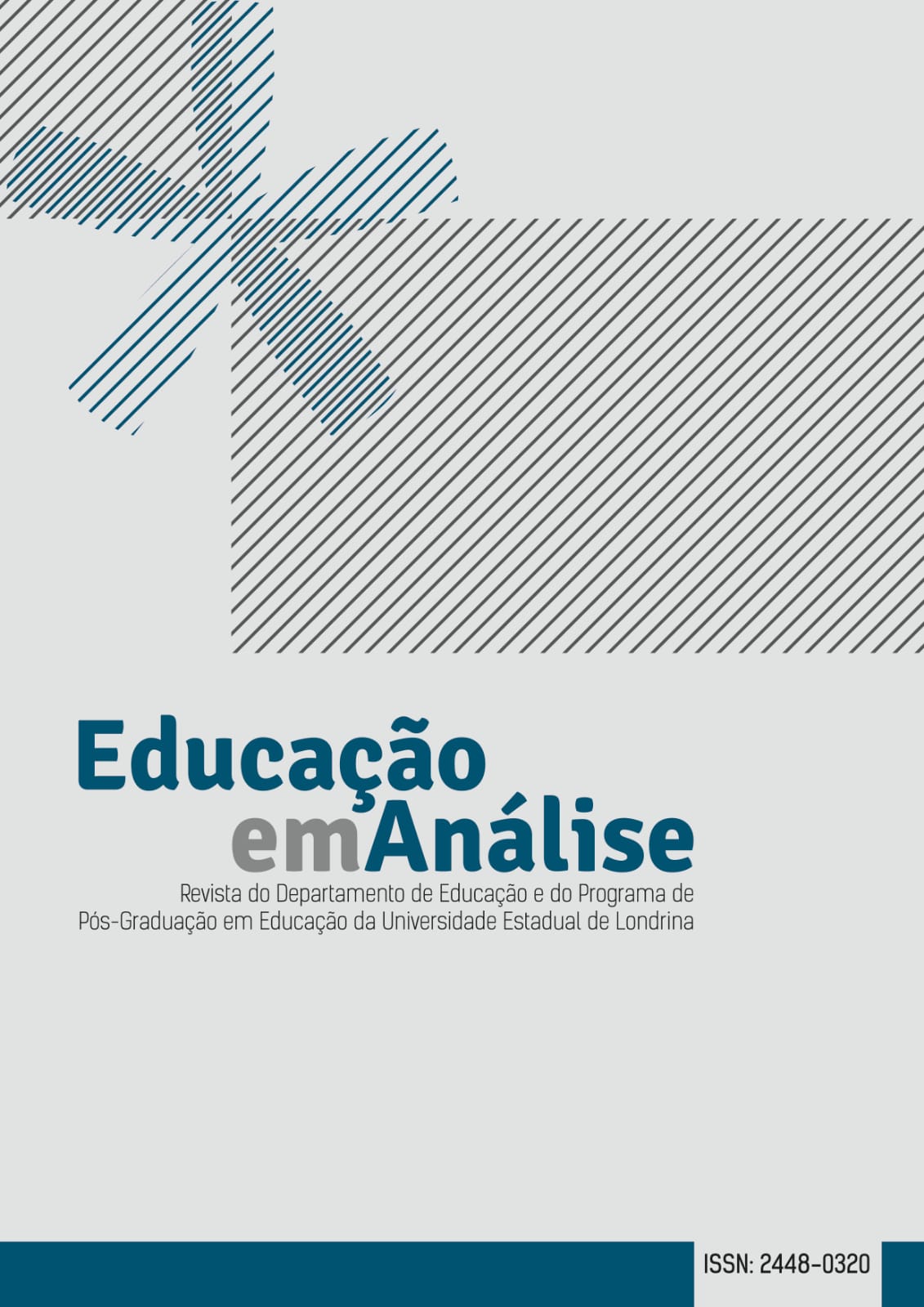Childhood, cinema and adoption: an analysis of the film Matilda
DOI:
https://doi.org/10.5433/1984-7939.2023v8n2p298Keywords:
Children's literature, Children; Children's Movies; Adoption; Psychoanalysis; Psychology.Abstract
This paper is about the adoptive parenthood presented in children's films, as well as what we can consider about adoption from these film works. It aims to reflect on the child's transition from the biological family to the family through adoption in the film Matilda. In addition, it seeks to present the relationship between children, children's films, and adoptive parenting, as well as to analyze and discuss a case of adoption by a solo mother in the film Matilda and whether the traumatic experiences lived previously, in the biological family, influence the child's behavior pattern. This is a bibliographic research, based on the studies carried out in the teaching project "Connected Children: a study about technologies in childhood", and on the theories of Psychology, Psychoanalysis and Adoption. The results show the importance of knowledge about adoption, so that adults can make the necessary mediations during and after the screening of the films, in order to help children understand the real meaning of adoption. We also highlight the contribution of Psychology and Psychoanalysis in the best transition of the child, from the biological family to the family by adoption.
Downloads
References
A FAMÍLIA do futuro. Direção: Stephen J. Anderson. Califórnia: Walt Disney Studios, 2007.
A EXTRAORDINÁRIA vida de Timothy Green. Direção: Peter Hedges. Califórnia: Walt Disney Studios, 2012.
BRASIL. Ministério da Educação. Secretaria de Educação Básica. Diretrizes curriculares nacionais para a educação infantil. Brasília: MEC, SEB, 2010.
BRAZ, L. T. A.; SARAT, M.; MONTIEL, L. W. T. O que vamos assistir hoje: cinema e animação na pré-escola. Horizontes – Revista de Educação, v. 6, n. 11, p. 107–125, 2018. Disponível em: https://ojs.ufgd.edu.br/index.php/horizontes/article/view/8116. Acesso em: 19 maio 2023. DOI: https://doi.org/10.30612/hre.v6i11.8116
CINEMATERNA. Disponível em: https://www.cinematerna.org.br/ Acesso em: 17 maio 2023.
DAHL, R. Matilda. Trad. Cecília Camargo Bartalotti. São Paulo: Martins Fontes, 2010.
FERENCZI, S. (1931). Análise de crianças com adultos. In: Psicanálise, 2. Ed. v. 4. São Paulo: WMF Martins Fontes, 2011, p. 79-95.
FERENCZI, S. (1933). Confusão de língua entre os adultos e a criança. In: Psicanálise, 2. ed., v. 4. São Paulo: WMF Martins Fontes, 2011, p. 113-121.
LILO e Stitch. Direção: Chris Sanders e Dean DeBlois. Califórnia: Walt Disney Studios, 2002.
LOUREIRO, R. Educação, Cinema e Estética: elementos para uma reeducação do olhar. Educação e Realidade, p. 135-154, jan./jun. 2008.
MATILDA. Direção: Danny DeVito. New Jersey: Jersey Films, 1996.
MEU MALVADO favorito. Direção: Pierre Coffin e Chris Renaud. Califórnia: Universal Studios, 2010.
MINHA VIDA de abobrinha. Direção: Claude Barras. Paris: Rita Productions, 2016.
MORAES, E. G.; MACEDO, M. M. K. Vivência de indiferença: Do trauma ao ato-dor. São Paulo: Casa do Psicólogo, 2011.
MORENO, G. L. Infâncias, memórias e culturas: as crianças no cinema, na literatura e nas artes plásticas. In: PASCHOAL, J. D; BATISTA, C. V. M; MORENO, G. L. (Orgs.). As crianças e suas infâncias o brincar em diferentes contextos. Londrina: Humanidades, 2008, p. 23-40.
MOURA, G. L. Programa Transversais – Guilherme Lima. Entrevistadora: Dilma Tavares Luciano. Vídeo. Recife: UFPE, 2016. Disponível em: https://www.youtube.com/watch?v=2aP5Don6Nt4. Acesso em: 18 maio 2023.
PAPALIA, D. E.; OLDS, S. W.; FELDMAN, R. D. Desenvolvimento humano. 8. ed. Porto Alegre: Artmed, 2006.
SCHIAVINATO, T. Afinal o que é parentalidade? Adoção em pauta [s.d.]. Disponível em: https://www.adocaoempauta.com.br/afinal-o-que-e-parentalidade/. Acesso em: 19 maio 2023.
O PEQUENO Stuart Little 2. Direção: Rob Minkoff. Califórnia: Sony Pictures Entertainment, 2002.
PAPALIA, D. E., OLDS, S. W., & FELDMAN, R. D. Desenvolvimento Humano. 8. ed. Porto Alegre: Artmed, 2006.
WINNICOTT, D. W. (1945). Desenvolvimento emocional primitivo. In: WINNICOTT, D. W. Da pediatria à psicanálise. Rio de Janeiro: Imago, 2000, p. 218-232.
WINNICOTT, D. W. (1960). Teoria do relacionamento paterno-infantil. In: WINNICOTT, D. W. O ambiente e os processos de maturação: Estudos sobre a teoria do desenvolvimento emocional. Porto Alegre: Artmed, 1983, p. 38-54.
Downloads
Published
How to Cite
Issue
Section
License
Copyright (c) 2023 Cleide Vitor Mussini Batista, Gilmara Lupion Moreno

This work is licensed under a Creative Commons Attribution-NonCommercial 4.0 International License.
The journal reserves the right to make normative, orthographic and grammatical changes in the originals, with the aim of maintaining the cultured standard of the language and the credibility of the vehicle. It will, however, respect the authors' writing style. Alterations, corrections, or suggestions of a conceptual nature will be sent to the authors when necessary. In these cases, the articles, after being adequate, should be submitted to a new appreciation.









